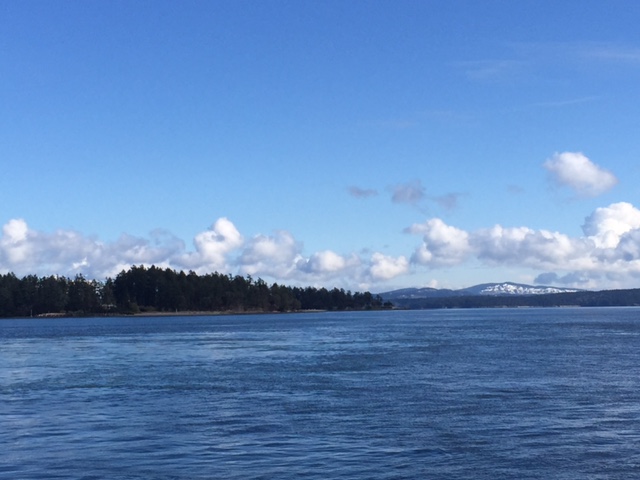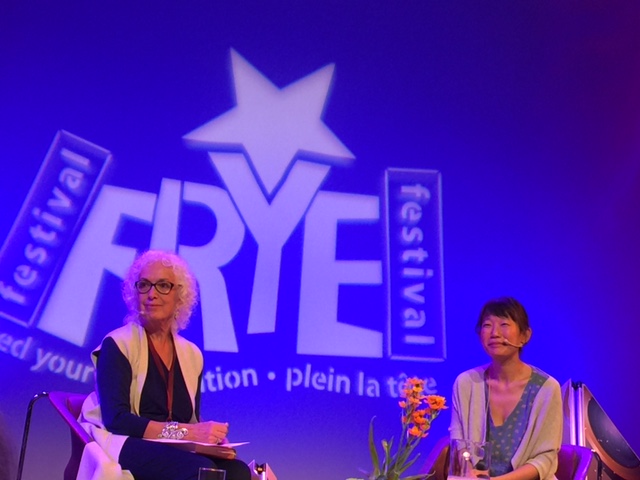Every time I go on a research trip, hours of work and preparation go into seeking out participants, making contacts, and planning the trip. After the trip even more hours go into overseeing the transcription and review process, analyzing and coding data, and preparing papers and presentations on the research.
But the trip itself – when I actually get to meet the writers or the members of the organizations where I am doing research, and the opportunity to attend writing events and learn first-hand about the experiences of writers whose perspectives I’m trying to gain insights into through my research – that is what makes it all worthwhile.

In doing my research I’ve been privileged to meet a number of fascinating people, to hear their stories, and also to visit many beautiful and interesting places across Canada and elsewhere. On a research trip earlier this winter I was in Victoria, and here’s a picture taken from the deck of the ferry on my way out to Salt Spring Island, where I met the author C.C. Humphreys at his wife’s café in Ganges. It was a chilly day (we had to postpone our interview because of a heavy snowfall the day before), but even in the off-season you can see why so many people are drawn to visit the beautiful Gulf Islands on the west coast of Canada. You can certainly why it would be an inspiring place to write!
Last week I attended a few events at the Frye Festival in Moncton, including a public interview with the eloquent Madeleine Thien, author of the Giller Prize winning novel, Do Not Say We Have Nothing. This novel took her five years to write, and yet as she said, “I thought that was fast.” I can see how to write a novel of that complexity with such careful craft would easily take that many years.

In the question session at the end, some of the controversies with the current Trump administration and media were raised, following discussion about her research on the protests at Tiananmen Square. News regarding this event is highly censored within China itself, so that many people do not know the truth of what transpired when many ordinary people attempted to prevent the military from attacking student protesters. Thien notes that a problem with social media is the brevity of space used to articulate ideas; people present positions, but the conversation is not nuanced and the back-up arguments or facts are often left out. As we know, a twitter feed is limited to 140 characters.
Thien explained that although her own political positioning tends to lean to the left, what she feels is the most important space, a space that needs to be protected for civil society and democracy to survive, is the space where people meet to talk – what in adult education, we often refer to as the “commons”. For this, Tien said, “I would fight for the centre. I would fight for the public sector. We need to have these conversations.” I would agree.
